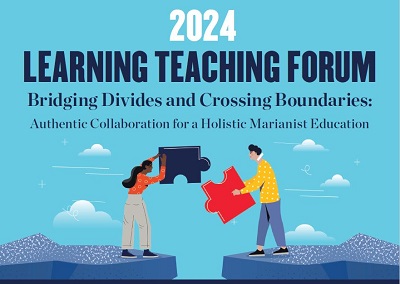Participatory Community Action Research in Homeless Shelters: Sustaining the Pandemic and Flourishing beyond It
About the Presenter(s)
Roger N. Reeb, Ph.D. Professor of Psychology Faculty Affiliate at Hanley Sustainability Institute Faculty Research Fellow at Human Rights Center Department of Psychology
Location
Kennedy Union Room 207
Start Date
3-1-2024 2:20 PM
End Date
3-1-2024 3:10 PM
Abstract/Description
The purpose is threefold. First, I will describe my long-term (12-year-old) and ongoing (and funded) transdisciplinary participatory community action research initiative – the Behavioral Activation Research Project in Homeless Shelters. In this part of the presentation, I will describe my ongoing long-term campus-community collaborative partnership with St. Vincent de Paul, as well as note the contributions of other campus-community partnerships. It will be explained that the Project has served as an “infrastructure” for student-driven independent studies. Our strategy (and success) in sustaining the Project during the pandemic will be briefly discussed. Second, I will review research (quantitative and qualitative) over the years demonstrating that the Project has significant benefits for (a) the psychological functioning of shelter residents and (b) the civic development of undergraduate service-learning students serving as research assistants. Third, the above discussion will set the stage for review of student-driven studies that have been conducted within the infrastructure of the Project since the pandemic. There will be a special focus on a recent study completed by an undergraduate honors thesis student that involved the following: the Montgomery County (Ohio) Office of Reentry (one of our collaborative partners); developing and implementing an intervention for shelter residents with a history of incarceration; and conducting a study (quantitative and qualitative) to show that the intervention had a significant benefit on self-efficacy for success in community reentry, with residents with disabilities and residents without disabilities benefiting from the intervention. There will be an emphasis on providing time for questions and discussion.
Goals for Attendees
1. How to develop and sustain multiple collaborations with community partners to develop, implement, and sustain a project, especially a participatory community action research project. This relates to aspects of the theme, such as "bridging divides" developing "authentic collaboration (i.e., development of campus-community partnerships). 2. How to develop and sustain "transdisciplinarity" in a project to provide a more comprehensive approach to a community problem. This relates to aspects of the theme, such as "bridging divides and crossing boundaries" and "holistic" approach. 3. How to utilize transdisciplinary service-learning pedagogy to develop and sustain a community project. This relates to aspects of the theme, such as "holistic Marianist education" and "authentic collaboration." 4. How to develop and sustain a "stand-alone" long-term project that also serves as an "infrastructure" for student-driven independent studies. This relates to the theme aspect of "holistic Marianist education" in the theme. 5. How do develop and sustain a project that (a) makes a (demonstrable) impact in the community and (b) enhances learning and civic development of students. This relates to the emphasis of "holistic Marianist education" in the theme.
Participatory Community Action Research in Homeless Shelters: Sustaining the Pandemic and Flourishing beyond It
Kennedy Union Room 207
The purpose is threefold. First, I will describe my long-term (12-year-old) and ongoing (and funded) transdisciplinary participatory community action research initiative – the Behavioral Activation Research Project in Homeless Shelters. In this part of the presentation, I will describe my ongoing long-term campus-community collaborative partnership with St. Vincent de Paul, as well as note the contributions of other campus-community partnerships. It will be explained that the Project has served as an “infrastructure” for student-driven independent studies. Our strategy (and success) in sustaining the Project during the pandemic will be briefly discussed. Second, I will review research (quantitative and qualitative) over the years demonstrating that the Project has significant benefits for (a) the psychological functioning of shelter residents and (b) the civic development of undergraduate service-learning students serving as research assistants. Third, the above discussion will set the stage for review of student-driven studies that have been conducted within the infrastructure of the Project since the pandemic. There will be a special focus on a recent study completed by an undergraduate honors thesis student that involved the following: the Montgomery County (Ohio) Office of Reentry (one of our collaborative partners); developing and implementing an intervention for shelter residents with a history of incarceration; and conducting a study (quantitative and qualitative) to show that the intervention had a significant benefit on self-efficacy for success in community reentry, with residents with disabilities and residents without disabilities benefiting from the intervention. There will be an emphasis on providing time for questions and discussion.




Comments
It would be an honor to present at the 2024 Learning Teaching Forum! I am flexible with regard to "format choice" and, so if you decide to accept my proposal, I will be happy with whatever format you decide as would allow me to contribute to the overall forum. Thank you for considering my proposal.